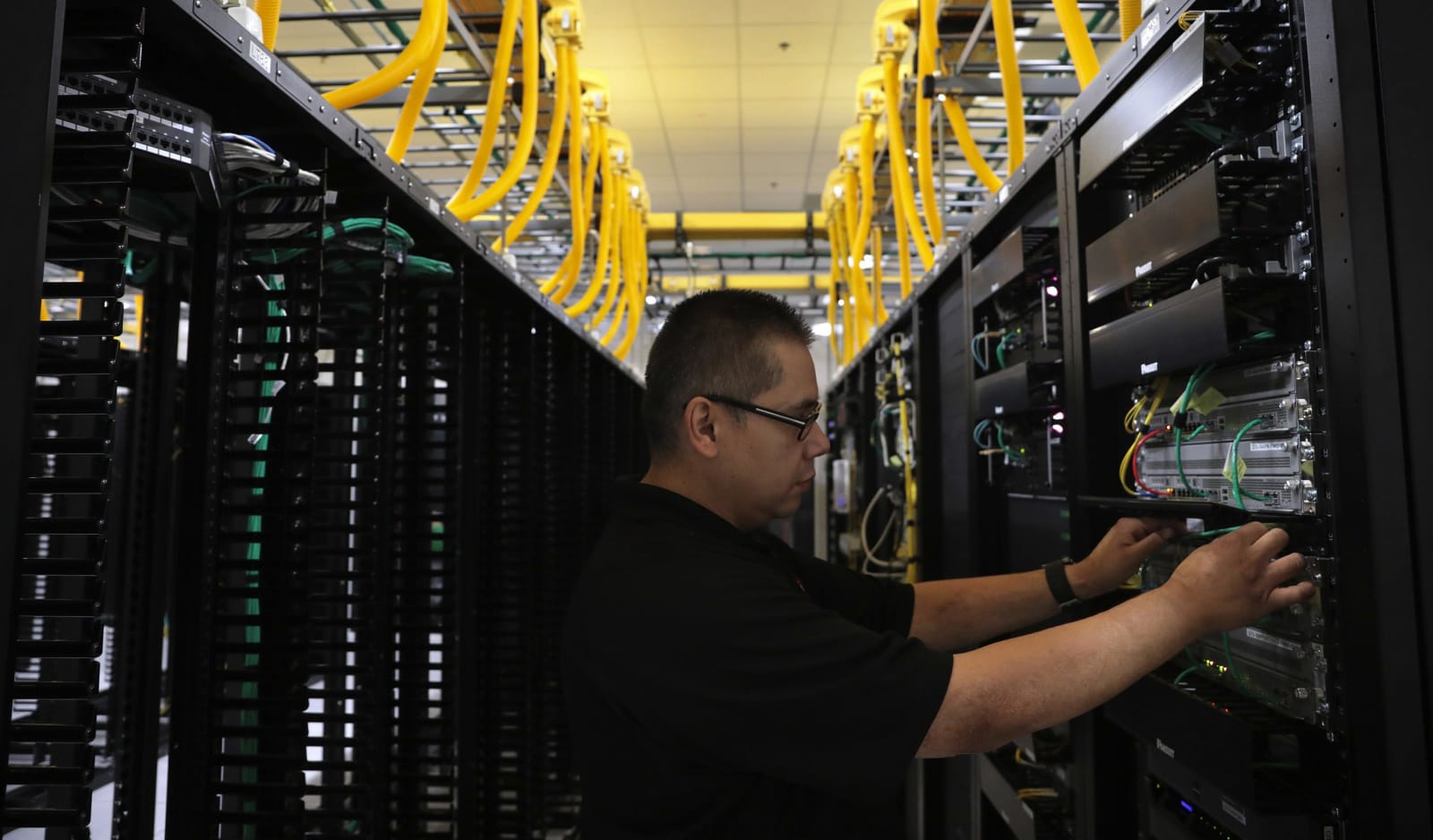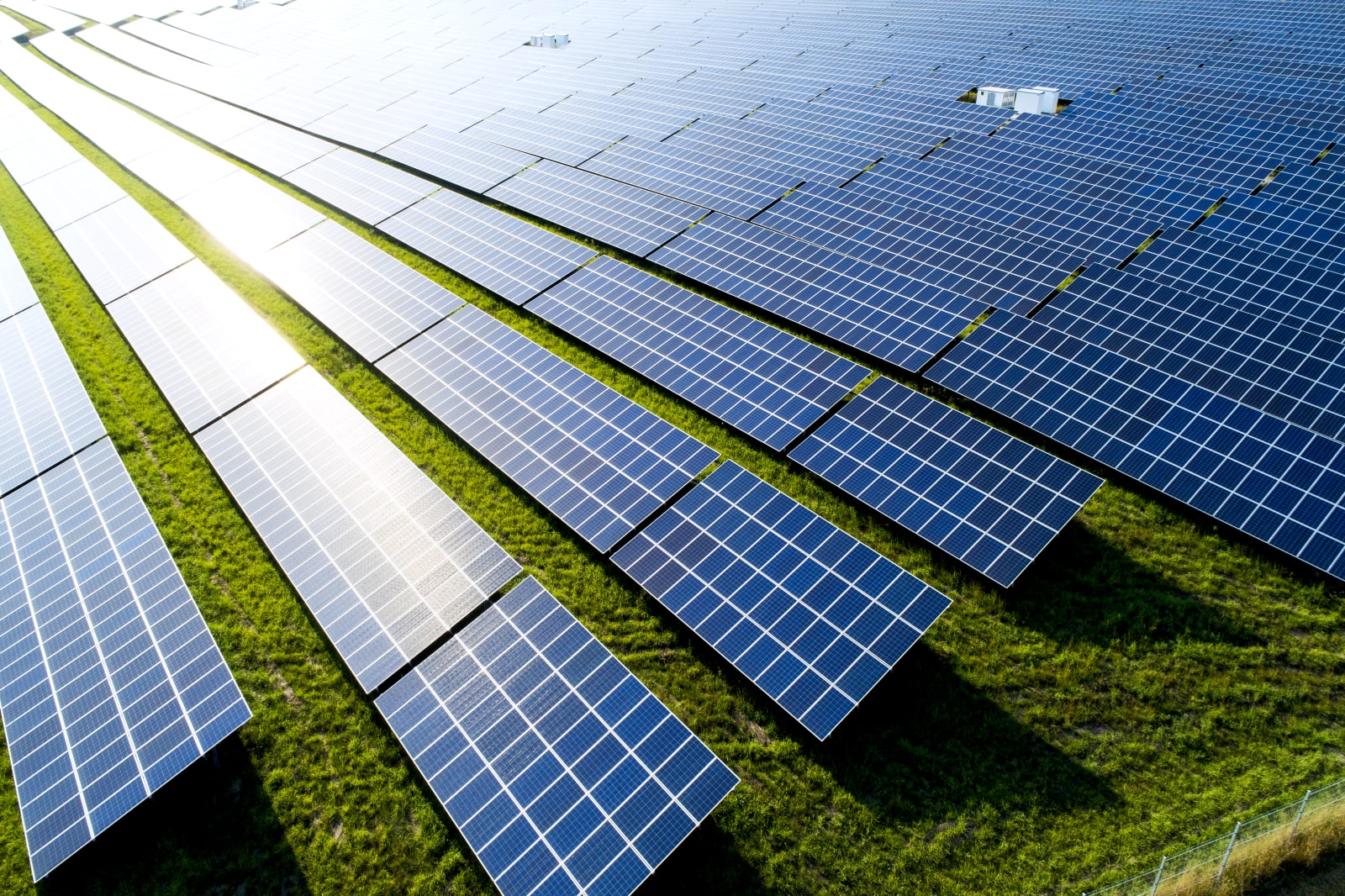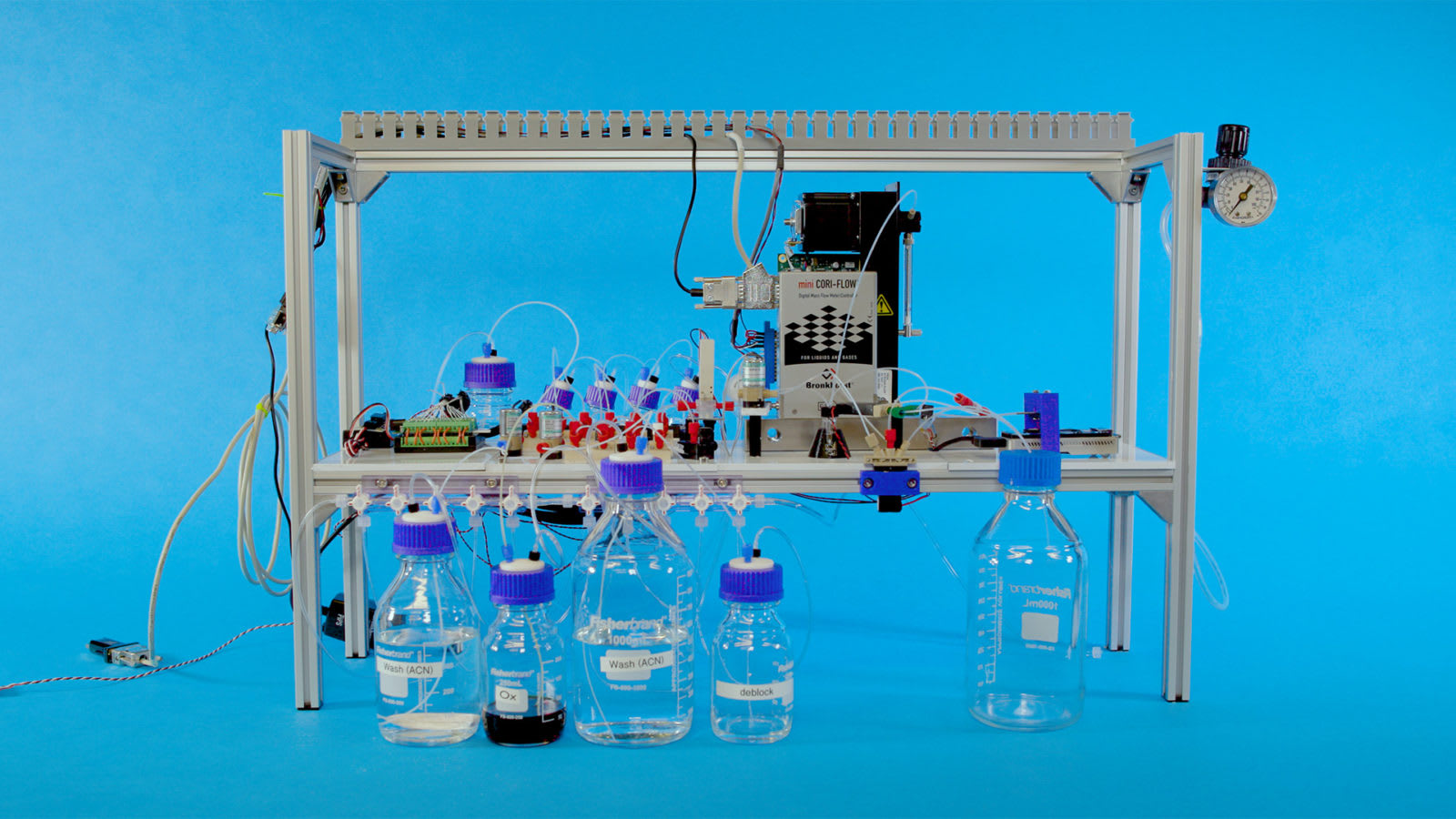Tag Archives: data centers
Google’s data centers will process some tasks when clean energy is abundant
The rise of cloud computing has had a smaller climate impact than feared
 As more and more gargantuan data centers come on line, environmentalists have been concerned about massive increases in electricity consumption and pollution. However, according to a new study published in Science, that simply hasn't happened. While...
As more and more gargantuan data centers come on line, environmentalists have been concerned about massive increases in electricity consumption and pollution. However, according to a new study published in Science, that simply hasn't happened. While...
Amazon plans new solar and wind farms in Ireland and Virginia
 Months after Amazon shareholders turned down a plea by employees to do more about climate change, the company announced two new renewable energy projects. Today, Amazon shared plans for a wind farm in Ireland and a solar farm in Pittsylvania County,...
Months after Amazon shareholders turned down a plea by employees to do more about climate change, the company announced two new renewable energy projects. Today, Amazon shared plans for a wind farm in Ireland and a solar farm in Pittsylvania County,...
Microsoft device stores digital info as DNA
 Microsoft is on its way to replacing data centers with DNA. The company and researchers from the University of Washington have successfully automated the process to translate digital information into DNA and back to bits. They now have the first, ful...
Microsoft is on its way to replacing data centers with DNA. The company and researchers from the University of Washington have successfully automated the process to translate digital information into DNA and back to bits. They now have the first, ful...
Researchers turn to 19th century math for wireless data center breakthrough
Researchers from Microsoft and Cornell University want to remove the tangles of cables from data centers. It's no small feat. With thousands of machines that need every bit of bandwidth available WiFi certainly isn't an option. To solve the issue, scientists are turning to two sources: the cutting edge of 60GHz networking and the 19th century mathematical theories of Arthur Cayley. Cayley's 1889 paper, On the Theory of Groups, was used to guide their method for connecting servers in the most efficient and fault tolerant way possible. The findings will be presented in a paper later this month, but it won't be clear how effectively this research can be applied to an actual data center until someone funds a prototype. The proposed Cayley data centers would rely on cylindrical server racks that have transceivers both inside and outside the tubes of machines, allowing them to pass data both among and between racks with (hopefully) minimal interference. Since the new design would do away with traditional network switches and cables, researchers believe they may eventually cost less than current designs and will draw less power. And will do so while still streaming data at 10 gigabits per second -- far faster than WiGig, which also makes use of 60GHz spectrum. To read the paper in its entirety check out the source.
Filed under: Wireless, Networking, Science, Alt, Microsoft
Researchers turn to 19th century math for wireless data center breakthrough originally appeared on Engadget on Fri, 12 Oct 2012 11:39:00 EDT. Please see our terms for use of feeds.
Permalink Wired |
Wired |  On the Feasibility of Completely Wireless Datacenters (PDF) | Email this | Comments
On the Feasibility of Completely Wireless Datacenters (PDF) | Email this | Comments Facebook releases its 2011 energy usage report, details your carbon footprint
More Facebook news, but this time we're back to the numbers instead of reporting on a new feature, improvement or integration. As part of its mission to swap the familiar blue for something of a greener tinge, Facebook released today its carbon footprint and overall energy usage figures for 2011. Turning bio-babble into easy visualizations, the company points out that for the whole year, an active user occupied roughly the same carbon footprint as one medium latte. Or, if you're a fan of the tipple, a couple of glasses of wine. Impressively, 23 percent of the social giant's energy usage came from clean and renewable sources, which puts it well on the way to its 2015 target of 25 percent or more. If you'd like more info and a complete breakdown of the stats, the full report is available at the source link below.
Filed under: Internet
Facebook releases its 2011 energy usage report, details your carbon footprint originally appeared on Engadget on Wed, 01 Aug 2012 20:58:00 EDT. Please see our terms for use of feeds.
Permalink | Facebook | Email this | Comments
Facebook | Email this | Comments Apple breaks ground on second solar farm for North Carolina data center
Last February, Apple came clean about its efforts to clean up the environment, detailing intentions to make its Maiden, NC data facility a greener place. That site, already home to one solar farm, is now set to host a second 20 megawatt photovoltaic array spanning 100 acres, a one-two power punch that'll jointly generate 84 million kWh annually. Combined with the company's in-development biofuel cell plant, scheduled for opening later this year, that theoretic yield should hit the 124 million kWh mark -- an amount sufficient to power nearly 11,000 households -- providing 60 percent of the center's electric demands. Still, that's not enough to adequately keep operations afloat, so for that very necessary, leftover 40 percent, the house that Jobs built plans to purchase similar clean energy from outside local sources. When all is finally up and running smoothly, the southern facility will earn the distinction of "most environmentally sound data center ever built." Or, at least until another well-heeled competitor comes along to contest that title. Now that's a friendly competition we can get behind.
Apple breaks ground on second solar farm for North Carolina data center originally appeared on Engadget on Thu, 17 May 2012 17:26:00 EDT. Please see our terms for use of feeds.
Permalink MacRumors |
MacRumors |  Apple | Email this | Comments
Apple | Email this | Comments 

